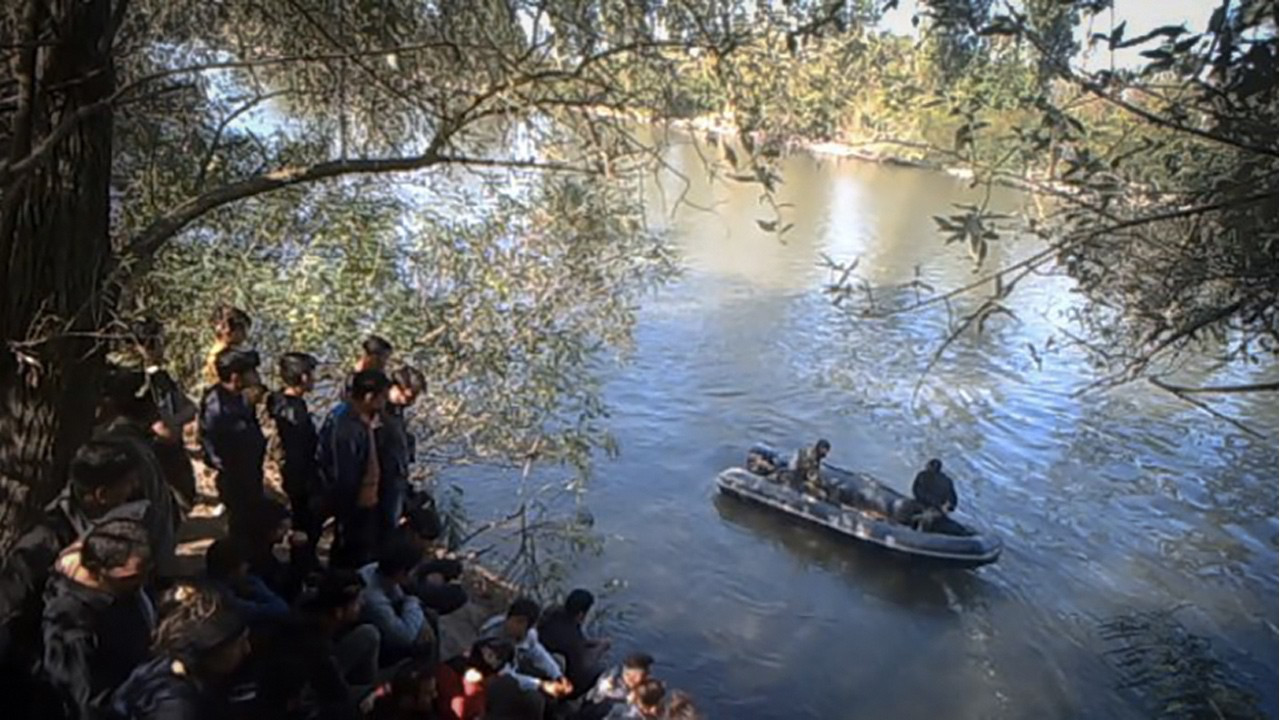Turkey releases Syrian 'banana video' journalist
Majed Shamaa, a journalist working for Orient News in Turkey, will not be deported over a video that showed him eating bananas in reference to a street interview where a Turkish national said they couldn't afford the fruit, his lawyer said.
Duvar English - Reuters
A Syrian journalist living in Turkey who caused a stir over a video about claims that local people could not afford to buy bananas while Syrians could won't be deported, his lawyer said on Nov. 8.
Majed Shamaa, a journalist working for Orient News, was detained and taken to a repatriation center in Gaziantep province, near the Syrian border, last week, pending a decision on whether to deport him.
Lawyer Mehmet Ali Hartavi told Reuters on Nov. 8 that Shamaa had been released and would return to Istanbul on Nov. 9.
Last month, Syrians in Turkey shared footage of themselves eating bananas in reference to a street interview where a citizen was heard comparing the financial wellbeing of Syrians with Turks.
"I can't afford bananas, but Syrians buy them in kilograms," the Turkish national was heard saying in the interview.
The comparison stems mostly from the social media rumors and speeches of nationalist politicians that claim Syrians live comfortably on government aid whereas Turkish nationals suffer from the economic crisis and unemployment.
Following the street interview, Syrians started sharing videos of themselves eating bananas on TikTok, while also using the voice recording of the interview.
The videos outraged many Turks, prompting authorities to detain foreign nationals over "provocative posts" of them eating bananas. The Immigration Directorate said those detained would be deported.
In a video, Shamaa, who has lived in Turkey for seven years, buys bananas in a secretive manner and hides away to eat them without being seen.
Hartavi said Shamaa had not intended to mock anyone with the video and wanted to address Syrians' problems in a humorous way.
Shamaa had feared being executed if sent back to Syria, prompting rights groups to call on Turkey for his release.
Some 3.6 million Syrian refugees currently live in Turkey.

 Turkey's move to deport Syrians over banana videos 'violates human rights'Human Rights
Turkey's move to deport Syrians over banana videos 'violates human rights'Human Rights Turkey to deport 7 Syrians over 'provocative' banana videosCulture
Turkey to deport 7 Syrians over 'provocative' banana videosCulture Turkey stalls probe into Turkish soldiers who drowned refugeesHuman Rights
Turkey stalls probe into Turkish soldiers who drowned refugeesHuman Rights